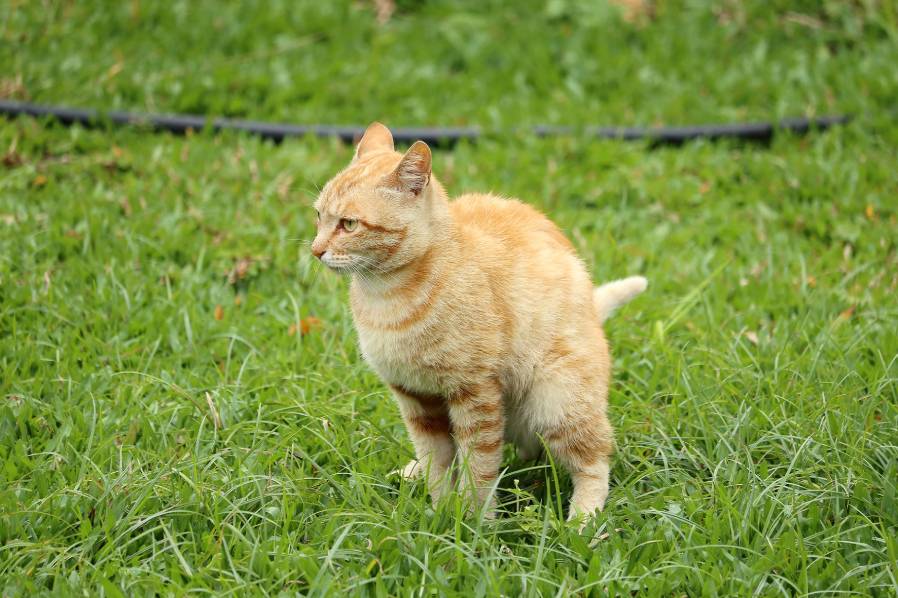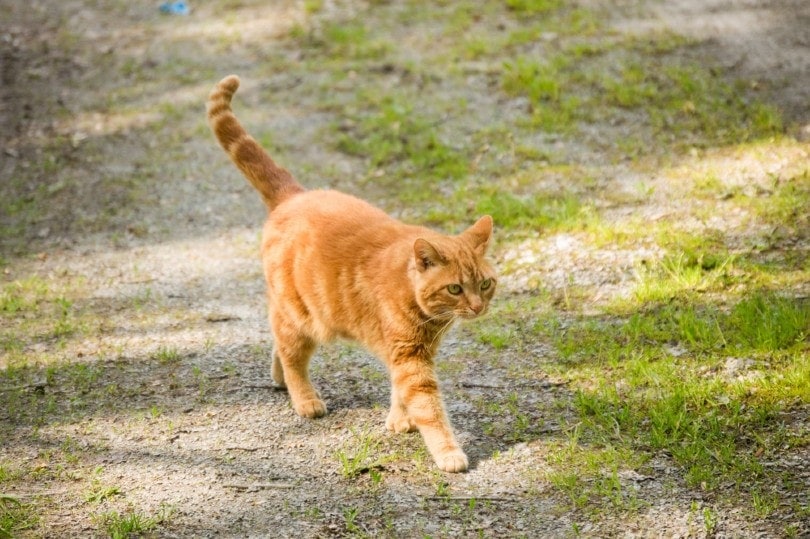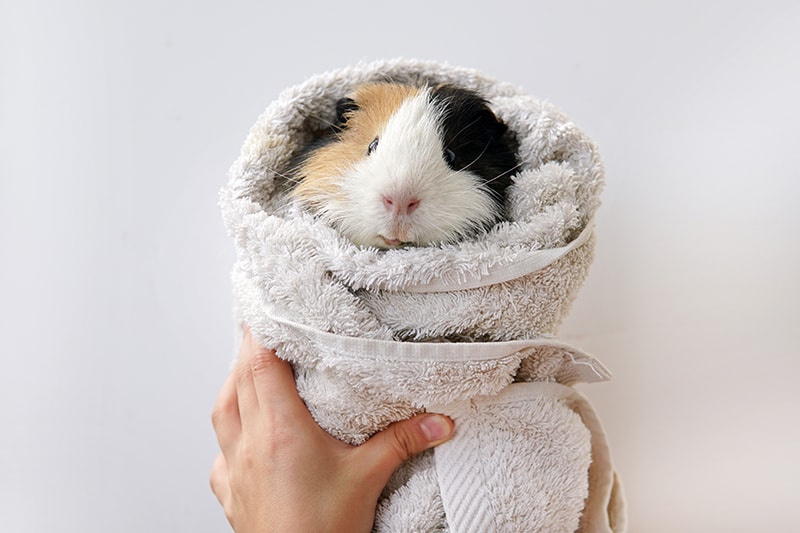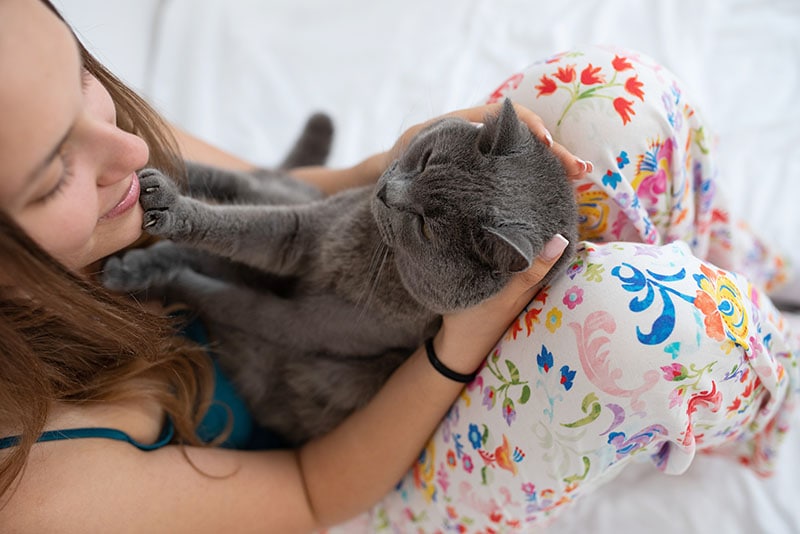VET APPROVED

The information is current and up-to-date in accordance with the latest veterinarian research.
Learn more »Click to Skip Ahead
Finding cat poop on your lawn seems inevitable if you have strays or feral cats in the neighborhood. But all cats are particular about the areas that they use for their bathroom needs. Your cat may not use the box that you have inside the house if you change the litter. We understand how frustrating it can be if your yard becomes an animal’s sandbox.
Understanding the cause of this behavior can lead to a few ways to put an end to it once and for all. It’s all about thinking like a cat!
The 3 Reasons for the Behavior
Many things a feline does are instinctive, which helps ensure their survival. Humans are similarly motivated. If something hurts us, we pull back our hands. A cat flees and acts wary of you if you accidentally step on their tail.
It’s helpful to understand that a cat’s sense of smell isn’t just about finding food. It’s also about communication. That leads us to our first reason for this unwanted behavior.
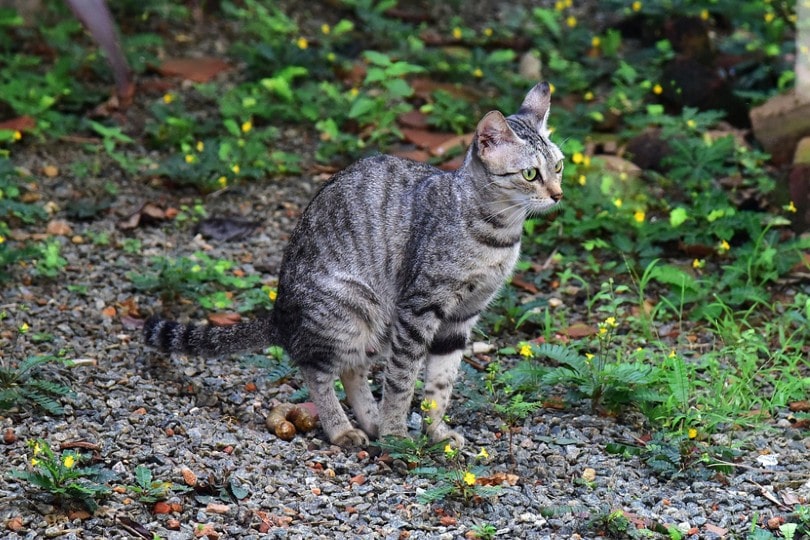
1. Marking Their Territory
Cats have a keen sense of smell that some research suggests is even better than that of dogs. One cause of a pet using your yard may be their way of marking their territory. The chances are that it wasn’t the first time the neighborhood feline left their calling card on your lawn. It may have hunted successfully in your yard and now wants to stake a claim on it.
Fecal marking, or maddening, behavior makes evolutionary sense. It takes a lot of energy for two animals to fight. There’s always the risk of not surviving the battle either. Leaving olfactory signs that a place is occupied serves both sides well. The intruder moves on to someplace unclaimed. The resident animal avoids possibly getting hurt to defend the land. It’s the proverbial win-win situation.
2. Favorable Place
Sometimes, you don’t have to delve too deep to figure out what’s happening. It could be as simple as your yard is a good place for the cats. Perhaps your grass is especially lush. Maybe there’s food around—like mice to catch.
The kitty may like your property because it’s quiet without any other pets harassing it. Your yard may have comfy spots to catnap. The rest comes naturally.
3. Health Issues
GI conditions can sometimes cause a sense of urgency. The cat may have used your grass once. Now that their scent is there, the offending feline returns to the scene of the crime for a repeat performance. It may not even have been intentional at all at first.
The 5 Ways to Stop It
There are several options you can try to get the cat to go elsewhere. Anecdotes about using mothballs, repellents, or plants that felines find offensive don’t guarantee a solution. Often, they aren’t practical either. We mentioned thinking like a cat.
You need to understand what motivates this behavior in the first place.
1. Making It Less Inviting
Animals need three things in life: food, water, and shelter. If the feline is frequently returning to your yard, the chances are that your property is fulfilling one or all these requirements. The solution is to make your lawn less attractive to the animal.
It may involve simply picking up the food and water bowls that you leave outside for the dog.
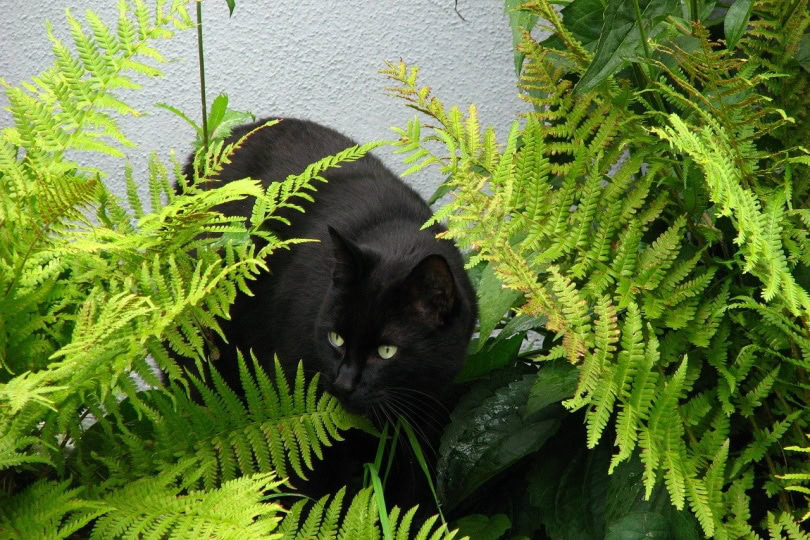
2. Alternative Places
Another thing you can do if it’s your pet using your grass is to provide it with an alternative. There’s no reason that you can’t have a litter box outside. You may even find that it deters other pests, such as rodents. Just be sure to give the box the same attention that you give to the one inside your home.
We also suggest avoiding strong-smelling litter to make it more inviting for the cat to use.
3. Motion-Activated Sound Detectors, Lights, or Sprinklers
Unfortunately, some animals don’t get the hint and need more persuasive methods to keep them away. Putting out a fake coyote or another decoy may work a few times. However, cats are intelligent and will figure out the ruse. Putting out a motion-activated device can do the trick. You have several options, depending on the location. A loud sound or flashing light may be all you need.
An alternative is to bring out the big guns with a motion-activated sprinkler. You’ll likely find that a cat tripping it just once may get the job done.

4. Bird Spikes
If the neighborhood tomcat is climbing a fence to get access to your yard, you might try a solution that some people use for avian pests. Bird spikes attach to the top of a fence and make it less comfortable for them to perch. It can have a similar effect on a cat trying to scale the barrier.
While it may seem like a cruel way to deter the intruder, it’s a better alternative than a fight with your pet.
5. Talking to the Owner
Perhaps the best solution is to have a chat with the pet owner. They may not realize that their cat is being a nuisance. Besides, it’s not a smart idea to let their pet roam the neighborhood, anyway. You’ll likely be doing them a favor and saving them a great deal of grief.
Final Thoughts
As much as we love our cats, sometimes they cross a line and do things we’d rather they not. Using your grass as their personal litterbox certainly ranks high on the list. Fortunately, there are several things you can do to discourage this behavior.
However, you may find that you’ll need more than one line of defense to get the culprit to find another stomping ground.
- See Also: Do Cats Eat Their Own Poop?
Featured Image Credit: topimages, Shutterstock
